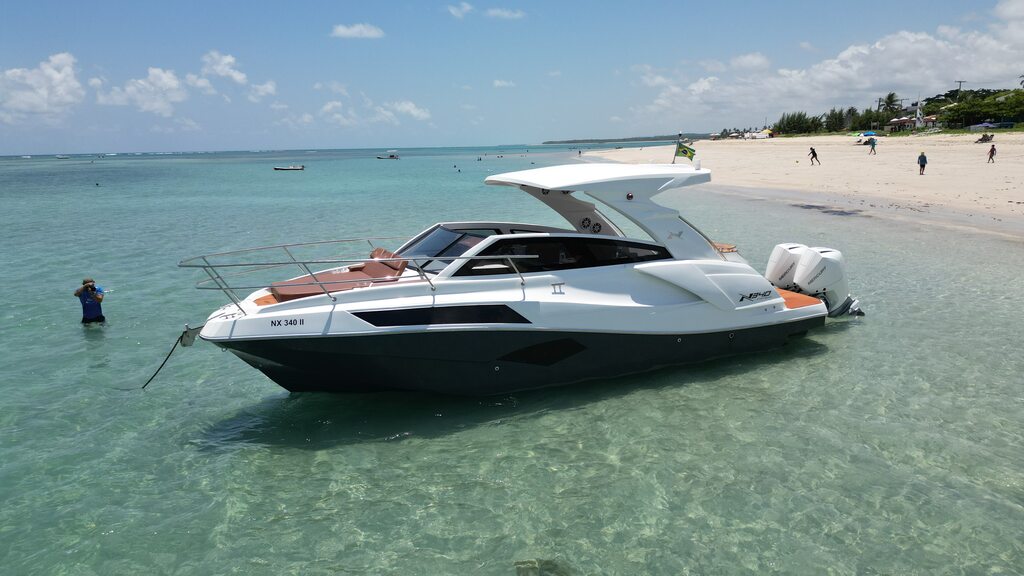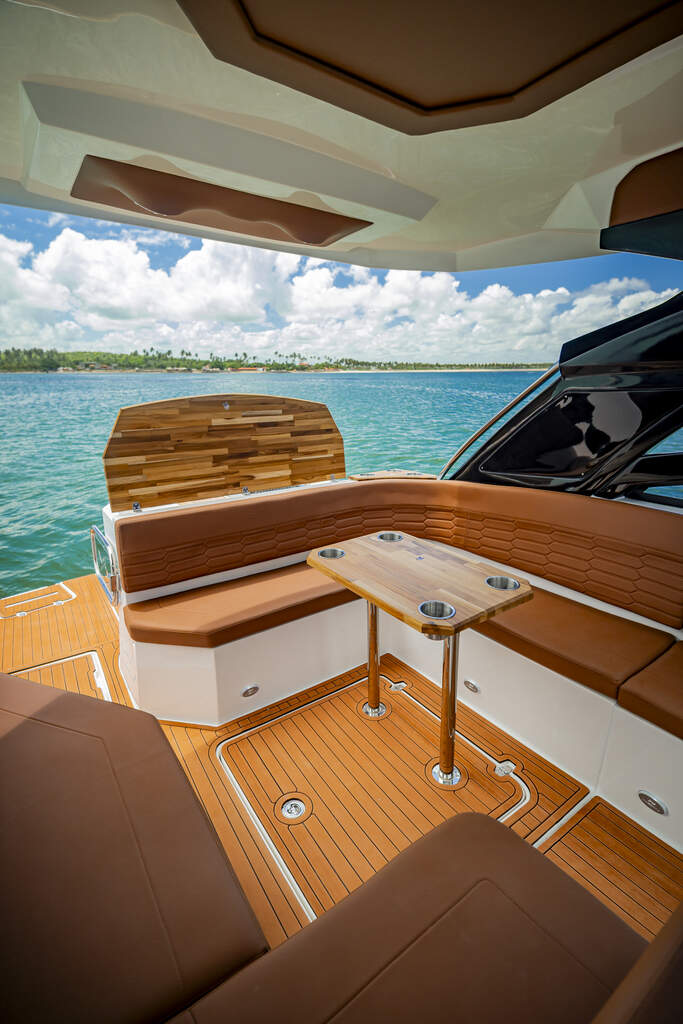LATEST NEWS
Difference Between a Boat and Yacht: Key Facts Explained

The difference between a boat and yacht often sparks debate among enthusiasts. At first glance, both are vessels designed to travel on water. Yet in practice, the words carry very different weight.
A boat suggests utility, modest size, or simplicity. A yacht, by contrast, evokes leisure, luxury, and prestige. The distinction involves mainly purpose and cultural perception. Understanding these nuances matters for anyone considering ownership or chartering a vessel.
What’s the difference between a boat and yacht?
First, we’re going to walk you through the main difference between one and the other.
Boats

Boats represent one of humanity’s oldest inventions, stretching back thousands of years. They range from small fishing skiffs to sturdy ferries.
The defining trait of a boat is function. Its role is usually practical—transporting people, carrying goods, supporting fishing, or offering short recreational trips.
Construction materials vary widely. Wooden hulls remain iconic, but fiberglass and aluminum dominate today’s market.
Power can come from simple oars, small outboard motors, or even sails. A boat is typically easy to operate, often requiring little training compared to larger vessels.
Importantly, boats are usually associated with accessibility. They are more affordable, easier to maintain, and designed for lakes, rivers, and coastal waters. The ownership of a boat rarely signals status. Instead, it signals practicality or a straightforward love of being on the water.
Learn about the NX260 Evolution, a compact and premium boat by NX Boats!
Yachts
A yacht is a different story. It implies size, comfort, and luxury. It’s more of a luxury boat.
While no universal measurement line separates a boat from a yacht, most professionals consider vessels longer than 33 to 40 feet as yachts. Beyond length, the defining quality is purpose: a yacht is designed primarily for pleasure.
Modern yachts often feature cabins, galleys, lounges, and even crew quarters. Technology plays a central role, with advanced navigation systems, climate control, and entertainment setups.
Larger yachts—sometimes referred to as superyachts—are floating palaces with helipads and multiple decks.
Unlike boats, yachts carry more cultural weight. They symbolize wealth, success, and exclusivity. Owning one often signals entry into a different social tier. For charterers, they promise a curated experience at sea, blending comfort and adventure.
Discover luxury yachts at NX Boats. Start exploring today!
When does a boat become a yacht?
The transition from boat to yacht isn’t as simple as hitting a specific measurement. Length provides a guideline, but features and intended use ultimately matter more.
A 40-foot fishing boat with bare essentials will rarely be called a yacht. Meanwhile, a 38-foot vessel with refined interiors, sleeping quarters, and leisure-focused design will earn the title.
Another factor is crew. Boats are usually owner-operated. Yachts, especially larger ones, often require hired staff to manage navigation, hospitality, and maintenance. This professional element signals a shift from functional vessel to lifestyle asset.
In everyday speech, the label is also about perception. Someone might refer to their stylish motor cruiser as a yacht to emphasize elegance, while another person may insist it’s just a boat. The language reflects not just specifications but identity and aspiration.
Ready to find your dream boat? Browse the NX Boats collection!
International regulations and classifications
Maritime authorities worldwide apply certain standards to distinguish vessels. These rules matter for registration, insurance, and safety requirements.
The International Maritime Organization (IMO) and national coast guards often classify vessels by tonnage, length, and purpose. Yachts fall into leisure categories, sometimes with sub-classifications like private yacht or commercial yacht. Commercial yachts must comply with stricter safety and crew regulations if they are chartered.
In the European Union, the Recreational Craft Directive outlines design and construction standards for leisure boats and yachts between 2.5 and 24 meters.
In the United States, the Coast Guard categorizes recreational vessels differently, but once size and luxury increase, they cross into yacht territory. These distinctions influence everything from licensing to mandatory safety equipment.
Read more: How to Throw the Perfect Party on a Yacht: Tips, Rules and Limits
Read more: Yachting Destinations for Beginners: Top U.S. Choices
How to choose between a boat and a yacht?
Selecting between a boat and a yacht requires clarity of purpose, understanding of features, realistic budgeting, and consideration of performance.
Purpose
The starting point is intent. If the goal is fishing on local lakes or short coastal trips, a boat offers everything necessary. Its simplicity matches utility.
On the other hand, if the vision involves extended cruises, entertaining guests, or enjoying multi-day voyages in comfort, a yacht fits better.
Features
Features create another dividing line. Boats typically include essential seating, basic storage, and maybe a small cabin.
Yachts expand the list dramatically, as we mentioned before. Choosing depends on how much comfort and lifestyle integration the owner expects from their time on the water.
Budget
Cost considerations extend far beyond purchase price. Boats are relatively inexpensive to maintain, fuel, and store. Yachts demand a far greater commitment.
Docking fees, crew salaries, insurance, and maintenance can equal or exceed the original purchase price over time. Buyers need to evaluate financial readiness not only for acquisition but also for continuous upkeep.
Did you enjoy this content? Learn more about boat insurance
Impressed by this content? Take the opportunity to explore the NX270 Horizon, where elegance, comfort, and high performance elevate the concept of a luxury yacht to a new level.
Meet the NX 50 Invictus, our luxury yacht for incredible sailing experiences
Performance
Performance varies as well. Boats often prioritize maneuverability and efficiency. They can reach shallow areas, handle rivers, or launch from trailers.
Yachts are designed for stability, long-distance cruising, and resilience in open water. Their engines are more powerful, but their size limits accessibility in small harbors or shallow waters.
Purchase your boat from NX Boats, contact us
Did you like this content? Keep browsing our news.
Ready for your next level in boating? Meet the NX41 Horizon, a masterpiece of sophistication, performance, and timeless elegance from NX Boats.
Conclusion
The difference between a boat and yacht rests on more than length or motor power. Boats are about function, simplicity, and accessibility. Yachts represent luxury, extended range, and status. Regulations define them in technical terms, but culture and perception deepen the divide.
For prospective owners, the decision comes down to intent. Those seeking practical transport or recreation may find a boat perfectly suited to their lifestyle. Those drawn to comfort and prestige will naturally gravitate toward yachts.
In the end, every vessel—boat or yacht—carries a story of human connection with water. The choice reflects financial capacity but also identity, ambition, and vision for life at sea.
For those who want this story to unfold with elegance and innovation, NX Boats delivers vessels designed to turn ambition into reality. Build your own boat and step into a new era of yachting!
Interested in learning about other NX vessels? Keep visiting our page

Um novo mundo está surgindo, e a NX Boats faz parte dessa mudança, estamos revolucionando o design, unindo conforto e modernidade tudo isso por que queremos proporcionar a melhor experiência para quem navega com uma NX.

